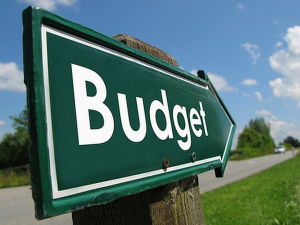
I’m starting to prep for my silly month of spending no money, and was going to ‘update my budget’.. however, full disclosure here, I don’t have one and I think they don’t work in the way most people rely on them.
I feel that budgets are analogous to a diet. In my opinion, diets don’t work (I don’t follow one of those either) as they are a veneer on bad habits. Unsurprisingly most diets seem to fail, and when they do the person tends to put on more weight in the process.
My approach to spending and saving is different. Firstly I take out as much money as I can from the inflows and assign that to deferred savings plans (401k, SEP IRAs, and a Roth if we can) stripping down our income gives us a ‘balance’. We then use that to pay our bills, and whatever is left over is left over. I have a strong debt aversion, so if we aren’t bringing in enough to cover lifestyle we will reduce outflows, unless there is a very specific reason and goal to consider debt such as a major purchase, quitting job to set up a new business, etc.
I’m not afraid to say ‘I can’t afford it’
I can’t afford a good steak dinner (you know, the ones with the Bone In ‘Cowboy’ Rib Eye, a bottle of good Napa Cab and some seafood appetizers). I’ve had many of these, but I’ve never done so on my own coin barring a one off at NYC Restaurant Week. My fix for this tends to be when a Casino comps me, or on a Cruise when it is a $20 upsell.
I can’t afford status. We travel a fair amount, but I can’t afford to pay my own money as a leisure traveler. I can’t afford to pay for hotel rooms or flights. That’s why i’m a big fan of points and miles.
More accurately, I’m pretty shameless
I do have some fancy touches in my life. I enjoy high end booze, the nicer clothes I wear tend to be decent, and I’m happy to spend when I think it is necessary. However, I don’t have an attitude where everything must be the finest. I think about 99% of my casual clothes come from a discount store like Marshalls, if its good enough I’ll use it. I’m a bit of a contradiction like that, I do splurge on things I want, but I don’t splurge all that often.
Macro vs Micro Budgeting
I guess you could say the difference between me and someone totally irresponsible with their money is that I have some ‘sort’ of budget. I do say that the first $18K of a paycheck must go to 401(k), and then I say we must pay our bills. But after than it become fuzzy. I think a great tool for making this work is to consider your saving goals as obligations. Rather than looking at what is left over each month and saving, just pull out X from the paycheck and spend what is left over.
In a ‘proper’ budget this would go on to break down for all things, bills, groceries, etc and have a bit of wiggle room at the end of it all for ‘discretionary spending’. Instead I pretty much have just three categories:
- Savings
- Bills (Tax, Insurance, Utilities)
- Discretionary
That’s a theory of course, because I don’t live that close to the wire in terms of spend. But that’s where the term ‘I can’t afford it’ kicks in. And if we can say that comfortably, we believe it. If we get a heating bill that is 3x what we expected this month, we are going to ‘think poor’ for a bit. We are also going to brainstorm ways to reduce the bill, exploring insulation, better heating systems, lower via ESCO and so on.
Tracking is critical
Despite not having a budget, I do recommend that people look at what they are spending and seek to optimize wherever they can. Indeed, I might recommend a budget for someone for a month to see how it makes them feel. IE we track in month 1, then we change habits in month 2. But ultimately, I wouldn’t say you live on one every month because it’s just too restrictive and miserable. The value of a budget and tracking would be to show a framework to someone, but it still requires internalizing.
Conclusion
It really comes down to being internally driven vs externally guided. Budgets are tools, but they are no replacement for learning, at a core level, your inflows and outflows. Personally, I don’t think the time it takes to set one up, or the rigor it takes to follow one, are worth the effort.
The post Budgets are Bollocks appeared first on Saverocity Finance.
Continue reading...
